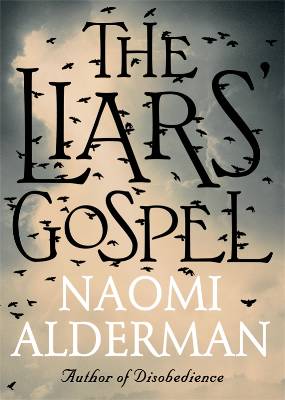
My new novel, The Liars' Gospel, was released by Penguin on 30 August 2012. Here's the blurb:
This is the story of a Jewish man, Yehoshuah, who wandered Roman-occupied Judea giving sermons and healing the sick. Now, a year after his death, four people tell their stories. His mother alternates between grief and rage while trouble brews between her village and the occupying soldiers. Iehuda, who was once Yehoshuah’s friend, recalls how he came to lose his faith and find a place among the Romans. Caiaphas, the High Priest at the great Temple in Jerusalem, tries to hold the peace between Rome and Judea. Bar-avo, a rebel and a murderer, strives to bring the peace tumbling down.
Viscerally powerful in its depiction of the realities of the period – massacres and riots, animal sacrifice and human betrayal – The Liars’ Gospel finds echoes of the present in the past. It was a time of brutal tyranny and occupation. Young men and women took to the streets in protest. Dictators put them down with iron force. Rumours spread from mouth to mouth. Rebels attacked the greatest Empire the world has ever known. The Empire gathered its forces to make those rebels pay.
And in the midst of all of that, one inconsequential preacher died. And either something miraculous happened, or someone lied.
-----
And a note from me not the back of the book: I'm calling it at the moment the story of Jesus told from the perspective of the Pharisees. Mostly because as an ex-Orthodox Jew I grew up a Pharisee, and I feel one doesn't hear enough about what an excellent point they had on lots of matters.
Here are a few reviews...
"Alderman's story is filled with pathos and doubt and pain that shows not so much the suffering of one Jew – "the King of the Jews" – but of all the Jews."
Stephanine Merrit in The Guardian
"Alderman writes in tough, visceral prose; this is a world of blood and dust, sweat, sex and violence. The dark wit that characterised her previous novels,Disobedience and The Lessons, runs through this book as an undercurrent, but The Liars' Gospel shows the hand of a mature novelist, a daring and accomplished work on a broad canvas. She is as much at home describing the sorrow of a mother as the cut and thrust of theological debate, as convincing on the weariness and self-doubt of a man forced by politics into moral compromise as the rush of blood in a teenage boy caught up in his first riot. She paints the sweep of history through the sharp pain of human love and loss, and it is a remarkable achievement."
"In a lacerating study of despair, Alderman portrays a woman who feels herself doubly bereaved: not only by the death of Yehoshuah, but by his rejection of her while he was still alive. "Her heart is a stone. Her mouth is a closed door." The metaphor is typical of Alderman's method. Brilliantly evocative in its own right, it also casts her grief as a rejection of what the followers of Yehoshuah are already interpreting as the supreme miracle of the resurrection."
"Alderman, however, is doing something rather different. While The Liars’ Gospel shares a central preoccupation with the nature of truth and the inherent slipperiness of words and memories, it roots its characters firmly and vividly in their historical and political context. You can see, hear, smell and taste first-century Judaea on every one of its pages. Alderman, whose previous two novels were concerned with contemporary Judaism, here succeeds magnificently in re-Judaising a story set 2,000 years in the past."
"By turns poetic and visceral, “The Liars’ Gospel” liberates towering figures from the stasis of iconography, giving them psychological depth."
